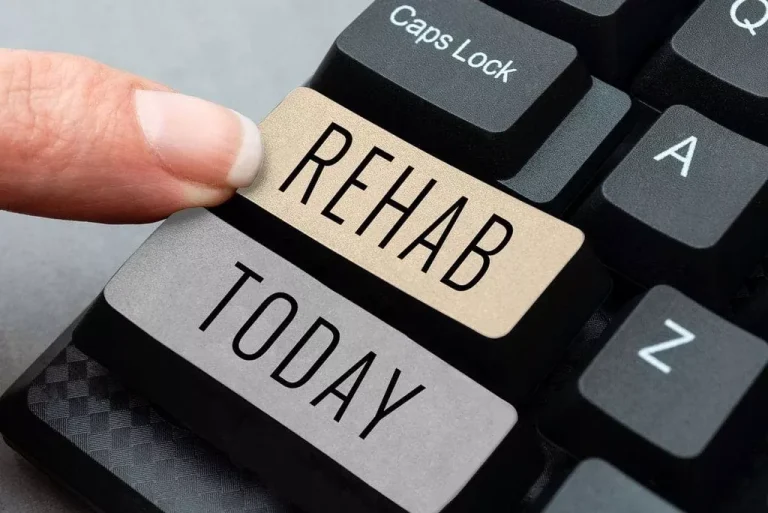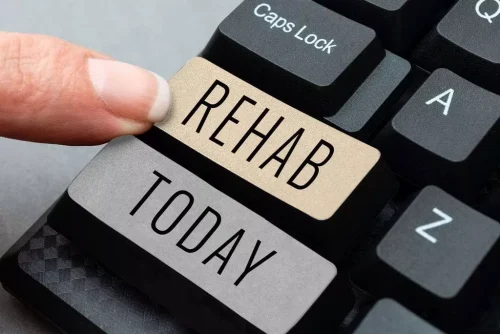
Binge drinking causes significant health and safety risks. If you drink more alcohol than that, consider cutting back or quitting. Talk to your healthcare provider about proven strategies. After drinking, you’ll become less responsible, less agreeable, and less able to think clearly. You’re also more likely to experience negative consequences, such as being arrested, when you drink alcohol. AUD treatment is usually centered on abstinence — getting you to completely give up alcohol.
- Physical symptoms such as weight gain (or loss) usually show up in this mid-stage, too.
- Alcohol is addictive, and alcoholism is a debilitating disease, but there are treatment options and support groups like Alcoholics Anonymous that can help you overcome your alcohol dependence.
- When you take naltrexone, you won’t feel relaxed or get a euphoric “high” from drinking.
Free Healthbeat Signup
- Chronic alcohol use can actually change the structure of the brain.
- (No cure currently exists.) But naltrexone can block you from feeling some of the effects of alcohol if you decide to start drinking again.
- Treatment for AUD can differ from person to person but sometimes starts with detoxification (detox).
- You might not recognize how much you drink or how many problems in your life are related to alcohol use.
- Certain personality traits and mental health conditions can also make someone more prone to alcohol addiction.
And some medications can help https://ecosoberhouse.com/article/social-drinking-and-drinking-problem/ when situations come up that may put you at risk for drinking again, such as the death of a family member, the loss of a job, or divorce. Your drinking may damage relationships with loved ones because of anger problems, violence, neglect, and abuse. Their babies are more likely to have fetal alcohol syndrome and sudden infant death syndrome (SIDS). Your doctor may ask about your drinking habits and want to talk with your family and friends.
Top doctors in ,

Be sure to ask your healthcare professional about what’s right for your health and safety. During pregnancy, drinking may cause the unborn baby to have brain damage and other problems. Heavy drinking also may result in alcohol withdrawal symptoms. The definition of heavy drinking is based on a person’s sex. For women, more than three drinks on any day or more than seven drinks a week is heavy drinking.

More in The Road to Recovery with Alcohol Dependence
- Even if your case of AUD is mild, it can have a serious effect on your physical and mental health.
- Alcoholism also affects the brain’s “reward center” and produces pleasurable sensations (such as anxiety reduction) when consumed.
- Consider talking with someone who has had a problem with drinking but has stopped.
- We walk alongside our clients on their journey; understanding their past and working together to build a new future – transforming lives and sustaining recovery for everyone we support.
- People with untreated depression, anxiety, or PTSD have a higher risk for alcoholism because they may self-medicate with the drug.
This leads to decreased pleasurable effects and alcohol dependence, as the person needs alcohol to feel normal. The “habituation” of drinking is also a critical factor in developing alcohol addiction. Repeating the same action until it becomes an automatic response forms habitual behaviors. The more a person drinks, the likelier they are to become dependent on alcohol to manage stress and emotions. If your pattern of drinking results in repeated significant distress and problems functioning in your daily life, you likely have alcohol use disorder.
Though at-risk and binge drinking can result in a range of adverse consequences, not all people who engage in these kinds of unhealthy alcohol use have alcohol use disorder. As individuals continue to drink alcohol over time, progressive changes may occur in the structure and function of their brains. These changes can compromise brain function and drive the transition from controlled, occasional use to chronic misuse, which can be difficult to control. The changes can endure long after a person stops consuming alcohol, and can contribute to relapse in drinking. Regardless of the type of support system, it’s helpful to get involved in at least one when getting sober. Sober communities can help someone struggling with alcohol addiction deal with the challenges of sobriety in day-to-day life.
More on Substance Abuse and Addiction
But good evidence shows that drinking high amounts of alcohol are clearly linked to health problems. Medically managed withdrawal or detoxification can be safely carried out under medical guidance. Medications, such as benzodiazepines, are given to help control withdrawal symptoms. If necessary, patients may receive intravenous fluids, vitamins, and other medications to treat hallucinations or other symptoms caused by withdrawal. Ultimately, sobriety is the responsibility of the person who has the alcohol addiction.
Residential treatment programs

These complications are reasons why it’s important to treat alcohol addiction early. Nearly all risks involved with alcohol addiction may be avoidable or treatable, with successful long-term recovery. Additionally, alcohol affects the neurotransmitter GABA, which helps slow down brain activity and produces feelings of calm and relaxation. Over time, as the brain becomes accustomed to alcohol’s effects, it starts to produce less GABA naturally, meaning the person needs to drink more to achieve the same calming effects.

They might also do a physical exam and order lab tests to learn whether alcohol use is affecting your health. Another way to look at your drinking habits is to think about how much you have during an average week. For women, “heavy” or “at risk” drinking means more than seven drinks per week or more than three in any day. For men, it’s more than 14 drinks in a week or more than four in a day. Alcohol use disorder (AUD) is a chronic illness in which you can’t stop or control your drinking even though it’s hurting your social life, your job, or your health.
Ready to Break Free From Addiction?
It’s a list of questions about your drinking habits, and how alcohol use affects your daily life and relationships. Your answers can help a doctor understand if you have AUD, and whether it’s mild, moderate, or severe. Alcohol use disorder (AUD) used to be called alcoholism. If you have it, you regularly drink heavy amounts of alcohol despite its negative effect on your life, health, and the people around you. It’s a range that includes alcohol abuse, which is when drinking has serious consequences again and again. It also includes alcohol dependence or alcoholism, which is when why is alcohol addictive you’ve lost control of your drinking.

